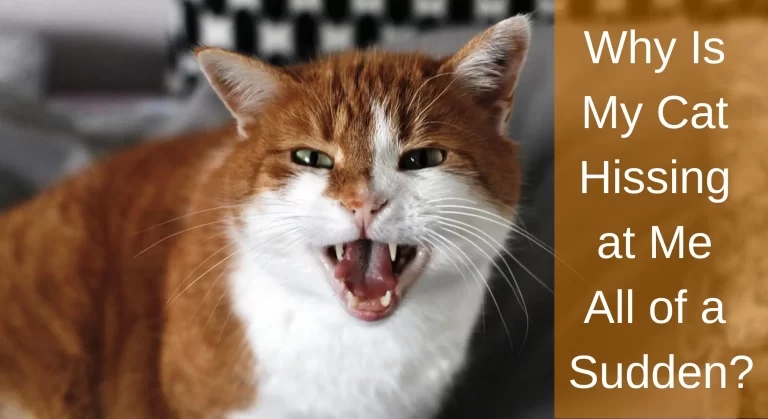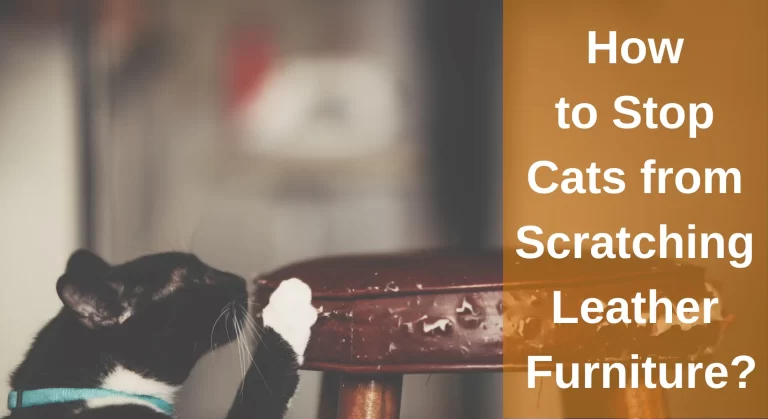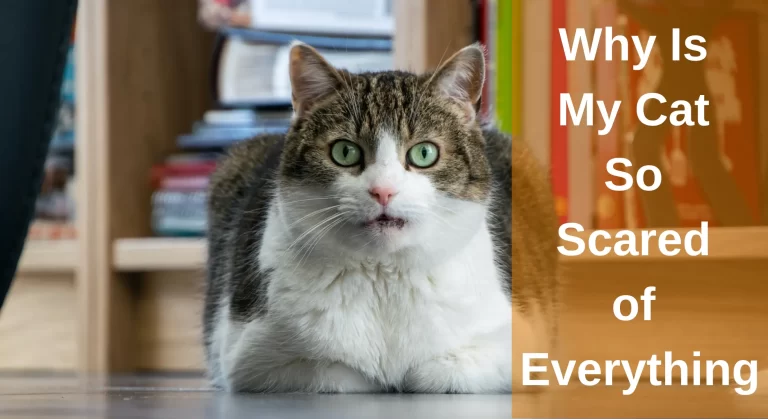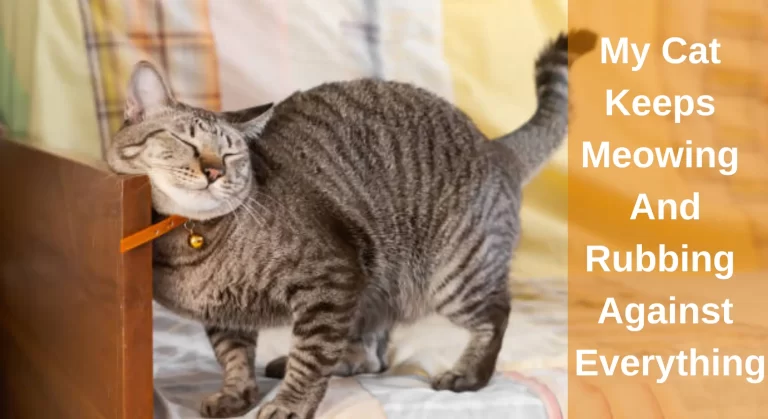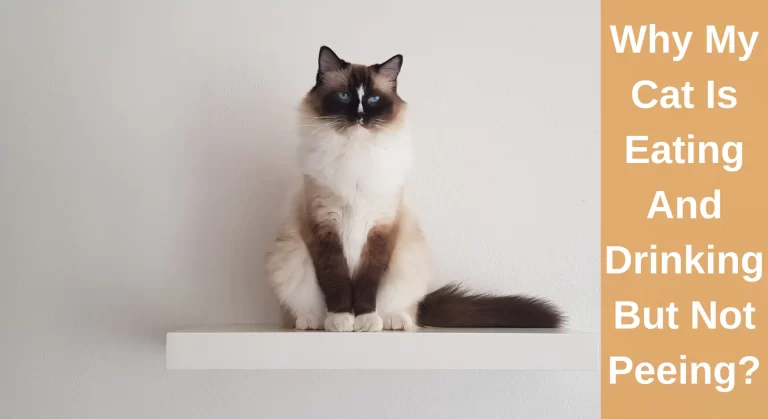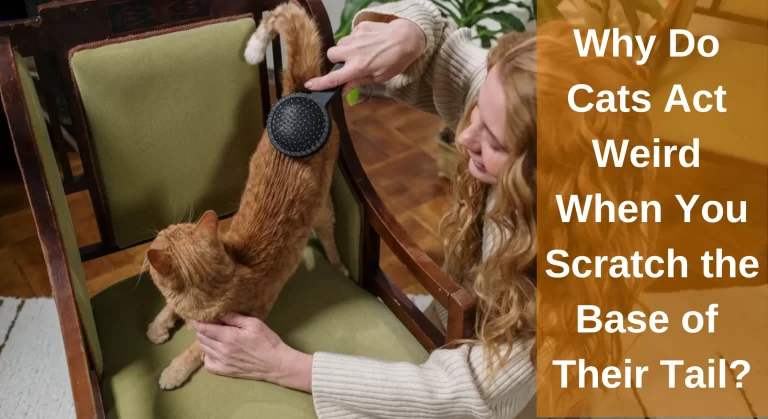Why Do Cats Get In Your Face While You Sleep? [Top 10 Reasons]
Cat owners have long wondered why their feline companions insist on sleeping on or next to our faces at night. Many of us may have woken up with a tail or a mouthful of fur in our jaws. A cat rubbing up against you is a good sign. Most cat owners observed this strange behaviour and wondered: Is your cat communicating with you? Why do cats get in your face while you sleep?
Cats do this as a sign of affection for their parents, who are being excellent cat parents. They cuddle close to us to feel secure and warm and to receive our attention.
Apart from the pleasant and fluffy feelings they emit, there are a few reasons why cats are so adamant about resting so close to our faces. You must grasp these justifications to set boundaries with the cat.
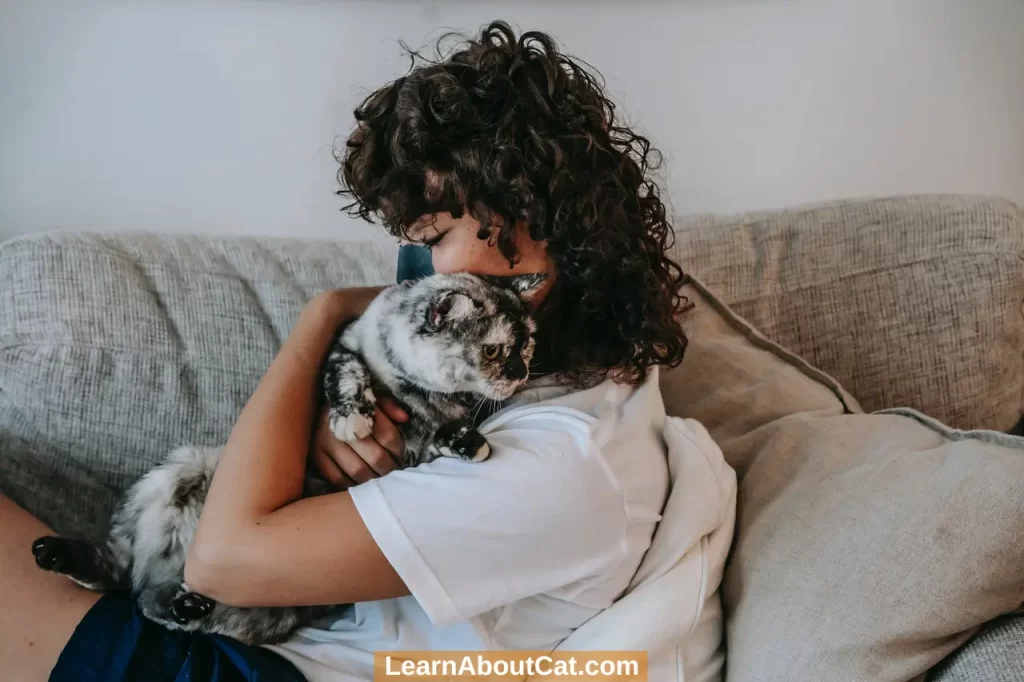
Reasons Why Do Cats Get In Your Face While You Sleep
You might have difficulty sleeping at night because the fluffy cat invades your space. When cats snuggle in bed, they seem to prefer the face more than anywhere else. While this behaviour can be annoying, it actually indicates that you are properly taking care of your cat and that your cat loves you.
Cats are known for their curious and playful nature, and they may get in your face while you sleep for a variety of reasons, such as:
1. Comfort Zone
Cats will seek out a cosy, safe place to rest. In this situation, the region closest to or on your face is the safest. A cat derives great comfort not just in your physical presence but also in your scent. They do this because cats have excellent senses of smell.
There are 200 million scent receptors in a cat’s nose. As a result, your cat has a 14-fold greater sense of smell than you have. It can determine where you spend the most time by smelling you. A cat would much rather sleep in your bed since it finds those places to be so cosy.
Cats love warmth and comfort, and your face may be a warm and comfortable place for them to snuggle up against.
2. Warmth
To sustain a cat’s internal body temperature, energy is needed. Like many other animals, cats save energy when they can, even with abundant and consistent food sources. Finding a warm place to sleep is one way to do this, as the body can generate heat more easily. The cranium is one of the most hotly heated human body parts.
Some cats try to catch your warmth by getting into your face when you’re sleeping since their bodies are cold and they’re trying to stay warm.
Check Out: Why Do Cats Cover Their Faces When They Sleep?
3. Claiming Ownership
Cats utilise their sense of smell for many things, including identifying territory. Cats mark their territory with the smell. Occasionally, cats mark you with their scents by sleeping on your face, rubbing against your legs, or making biscuits.
Therefore, a cat will feel calmer when it rests in or on objects that have been perfumed with its own fragrance. If the place instead smells like you, it will also feel secure because it is your private zone.
In other words, if your cat sleeps on your face, you can count yourself as one of his favourites, especially if he head-bumps you frequently!
Intresting Reading: Why Does My Cat Lick My Face?
4. Attention Seeking
There are differences between cats and humans in terms of their natural sleep cycles. We prefer to sleep at night, whereas cats are crepuscular animals, meaning they are most alert between dusk and dawn.
Cats are social creatures and they may want attention, especially when their human is asleep and not giving them any attention. They may try to wake you up by getting in your face or meowing.
A lonely, anxious cat may find comfort in sleeping as close to you as possible and spending time with you.
5. Protection
While you are sleeping, your cat will use the chance to enter your room and approach you. When cats are near their owners, they feel comfortable and safe, which is why they may sleep on your face to feel safe.
They feel more protected when they are closer to you since they know you will keep them safe should anything dangerous enter the room. The most vulnerable time for cats is as they sleep, so they seek the most protection during this period.
And another reason is cats have a natural instinct to protect their humans. If they sense any danger or if they hear any strange noises, they may get in your face to protect you.
6. Showing Affection
Cats may show affection by rubbing their face against their humans or licking them. If a cat gets in your face and kisses your head while you sleep, it may be trying to show love and affection.
During the day, they cannot rub their cat’s head against yours. It is not unusual for cats to rub up against your legs as they are lower to the ground, so this is another sign that they love you! When they sleep, they can get in your face and rub against you, and they just want to communicate with you!
7. Non-Disrupted Environment
Taking into account how much tossing, turning and kicking you may be doing during the night, it makes sense all of it happens down the end of your bed. Up on your pillows, you are safe.
If a cat wants to share your bed, it must pick a specific location where it may feel safe. If not, it could accidentally bump or squash in the dead of night. Sleeping on your head may be a safer, more comfortable, and less disruptive option
8. Curiosity
Since cats are naturally curious creatures, this instinctive behaviour isn’t likely to change anytime soon since they have helped these curious creatures survive in nature. Your cat may also get in your face while sleeping due to curiosity.
The perfect opportunity is when you are peacefully sleeping when their eyes can clearly see your face, the noises you make, and the expressions you make. They might have been too curious to resist!
9. For Developing a Hierarchy
Conflict may arise in multi-cat households when the cats attempt to establish a hierarchy. Developing a ranking system is probable even for homes without these issues. Alpha cats may seek to sleep on your bed or close to your head in order to establish their authority over the other cats.
10. Habit
And last, your pet may be trying to get in your face while you’re sleeping out of habit. If your cat has been sleeping on your bed and getting in your face since it was a kitten, it could naturally continue to do so as an adult, and it might simply be a habit.
It’s as if they think your face is the place where they’re supposed to sleep – but they don’t realize that they are something of a nuisance! Quickly pat your curious cat on the head, then move it away from your face so you can get back to sleep.
Should You Let Your Cat Sleep with You?
Allowing your cat to sleep with you is a personal choice that depends on several factors. Here are some pros and cons to consider:
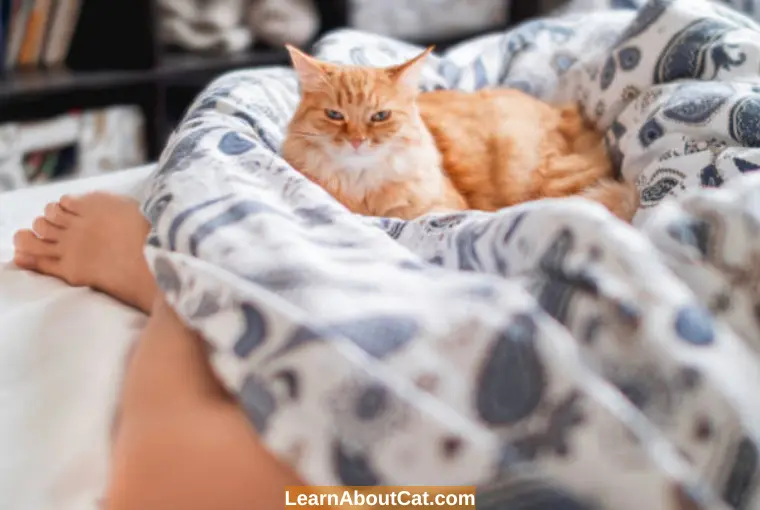
Benefits of Cat Sleeping on Your Face
- Companionship: Sleeping with your cat can provide you with a sense of comfort and companionship.
- Bonding: Sharing a sleeping space with your cat can strengthen the bond between you and your furry friend.
- Relaxation: The sound of your cat purring may help you relax and fall asleep more easily.
- Reduce Stress and Anxiety: Studies have even shown that having a pet in the bed can help to reduce stress and anxiety.
Risks of Cat Sleeping on Your Face
- Sleep disruption: Your cat may wake you up at night by jumping on or off the bed or meowing for attention.
- Allergies: If you are allergic to cats, allowing your cat to sleep with you may cause allergy symptoms to worsen.
- Hygiene: Cats may shed fur, carry dirt and debris on their paws, and even harbour parasites, which could impact your sleep hygiene and overall cleanliness.
Note: Ultimately, the decision to let your cat sleep with you should be based on your personal preferences and lifestyle. If you’re a light sleeper and are easily woken up, it may not be your best choice. However, if you enjoy the comfort and companionship of your cat and are willing to put up with any potential disruptions or hygiene issues, then letting your cat sleep with you may be a good option.
How to Keep Your Cat from Waking You Up?
Cats are naturally active and playful creatures, and sometimes they may wake you up in the middle of the night or early morning. Here are some tips to help you deal with your cat waking you up:
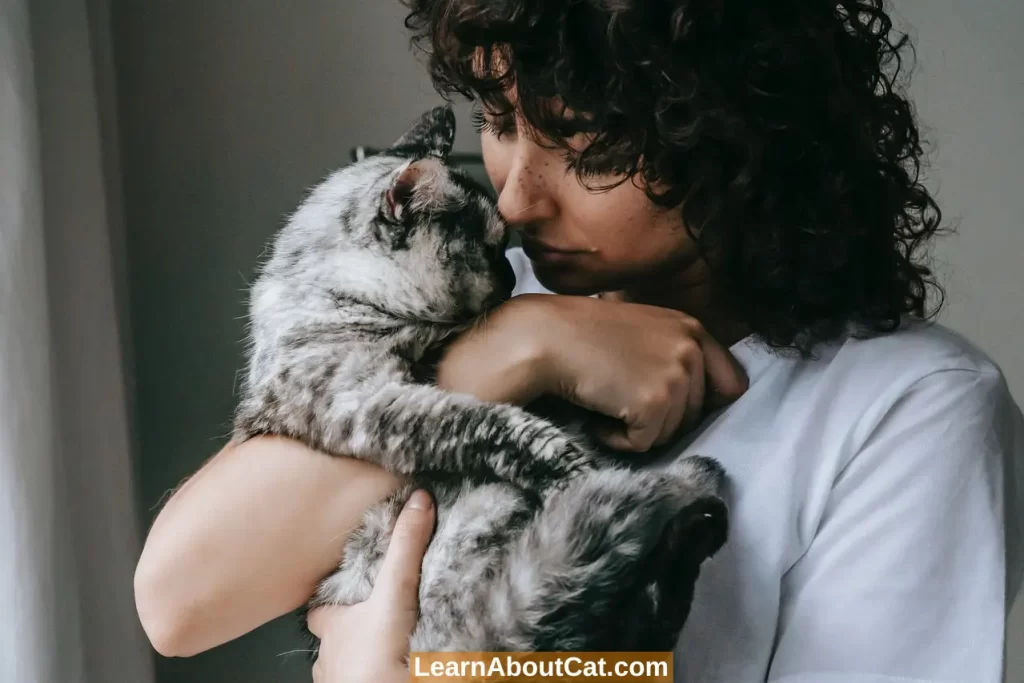
- Stick to a routine: Cats are creatures of habit, and if you stick to a consistent routine, your cat is more likely to follow it too. Establish a regular feeding and play schedule so your cat gets tired at the same time each day.
- Provide plenty of entertainment: Cats need plenty of mental and physical stimulation to keep them happy and engaged. Make sure your cat has plenty of toys to play with and access to scratching posts or other things to climb on.
- Use positive reinforcement: If your cat wakes you up at an inconvenient time, try to avoid punishing or scolding them. Instead, reward them when they behave well or respond to your commands. In this way, unwanted behaviour will be discouraged while good behaviour is reinforced.
- Create a comfortable sleeping space: Provide a comfortable and safe sleeping area for your cat, such as a cosy bed or a designated spot on your bed. Their sense of security will increase, and they may sleep better at night as a consequence.
- Consider a timed feeder: If your cat is waking you up because they’re hungry, consider investing in a timed feeder that dispenses food at set intervals throughout the day. This can help ensure your cat gets the nutrition they need without interrupting your sleep.
- Close the Door to Your Bedroom: This is an option to explore if you have difficulties sleeping every night. Your cat will most likely be disturbed, but enrichment toys and puzzles may be placed in another room to keep them from clawing at the door.
Remember, cats are individuals, and what works for one may not work for another. Be patient and try different techniques until you find the ones that work best for you and your feline friend.
Why Do Cats Sniff The Face of Their Owners?
Our cat smells our face when we open our eyes. The cat’s strange behaviour makes the abrupt awakening all the more puzzling. So why do cats scratch our faces when we sleep?
Sometimes cats will smell us to see how we are doing. If you had a cat’s sense of smell, you could tell a lot about how we were feeling just by how we smelled. Felines can:
- Acknowledge our emotional state to some extent.
- Your cat could also notice that your body is losing some of its own scents.
- If we become harmed or unwell, your kitty will let you know soon.
- Sniffing us, you can tell who or what we’ve recently interacted with.
- The ease of access is the most likely reason why our cats regularly lick our faces when we’re sleeping. We enjoy our feline pals but occasionally avoid making eye contact with them. While we are resting, our pets may get a good whiff of our condition.
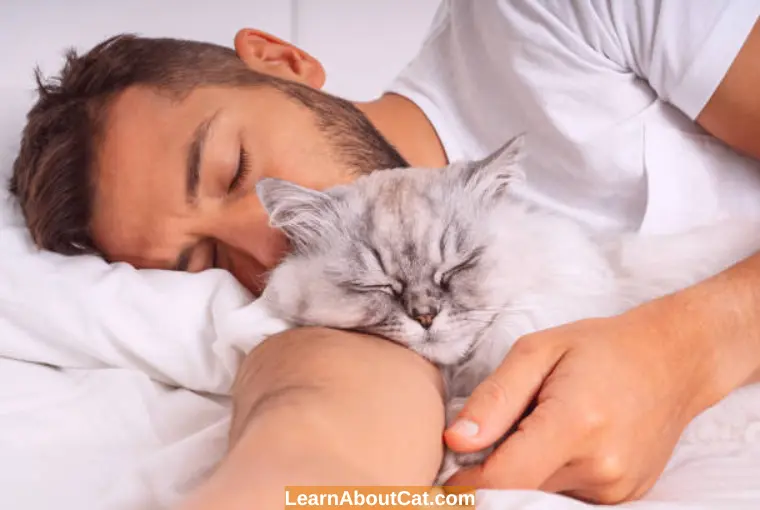
Why is My Cat Obsessed with my Face?
Cats can become fascinated with their owner’s faces for various reasons. Here are a few possibilities:
- Affection: Your cat may simply love you and want to be close to you. Cats often show their affection by nuzzling or rubbing their faces against their owner’s face, hands, or other body parts.
- Scent marking: Cats have scent glands on their faces, and they use these glands to mark their territory and communicate with other cats. By rubbing its face against yours, your cat may leave its scent on you to claim it as its own.
- Curiosity: Cats are naturally curious animals and may be fascinated by your facial features, such as your eyes, nose, and mouth. Your cat may be studying your face to learn more about you or simply trying to understand what you are doing.
- Attention-seeking: Cats are social creatures and crave attention from their owners. If your cat has learned that rubbing its face against yours gets a positive response from you, such as pets or cuddles, it may be seeking attention in this way.
Overall, a cat’s fascination with its owner’s face is usually a sign of affection and a desire to be close to its owner. As long as your cat’s behaviour is not aggressive or causing any harm, it’s generally nothing to worry about and can be a sweet bonding experience between you and your furry friend
Frequently Asked Questions
Why does my cat paw so near to my face?
In order to let us know they trust us and want us to know it, cats will get close to our faces and reach their paw to our faces. Cats, you know, leave their unique odours on the people they like. Doing this may reassure the cat and communicate to other animals that you are a part of the cat’s family.
This is crucial in territorial animals and shows your cat’s devotion.
In fact, cats are quite affectionate and like spending time with their family. While napping near their humans, cats can socialise.
Why does my cat get so close to me?
You have a good relationship with your cat, so that’s a good sign. Sniffing each other’s faces is a common greeting among cats, and it is very uncommon for cats who don’t like each other to do so. Therefore, your cat shows its affection and trust by being so close to you, and They mark their favourites with their own scents.
Why do cats want to nap close to their owners?
If they slept next to you, they would have protection and an extra line of defence if a predator were to approach at night. They decide to sleep with you because you are dependable, risk-free, and have the ability to boost their defences if required.
Final Thoughts!
Cats often doze off on their owners’ faces. Even though it could be irritating, having fur in your mouth sometimes when you wake up. An affectionate, trusted cat will want to nap near its owner’s head. It could bother you if your cat is overly focused on your face. But be aware that it can be acting in this way to express affection or find security and comfort.
In order to sleep at night, cats need to feel safe. It’s conceivable that their owners are the source of their contentment. Along with their simple existence, this also refers to their warmth and scent. Young cats and kittens are eagerly seeking.
Related Posts:
- Why Does My Cat Lick My Face?
- Why Does My Cat Nibble My Fingers?
- Why Does My Cat Follow Me Everywhere And Sleeps With Me?
- Why Is My Cat So Affectionate All of a Sudden?
- Why Does My Cat Bite My Hair And Head?
- Why Does My Cat Purrs And Bites Me Gently?
- Why Does My Cat Bite Me?
- Should I let My Cat Lick Its Wound?
Who is Isabella?
My name is Isabella, and I am a dedicated and knowledgeable cat enthusiast. With years of experience caring for cats and a deep love for felines, I made a mission to help other cat lovers navigate the challenges of cat ownership.

